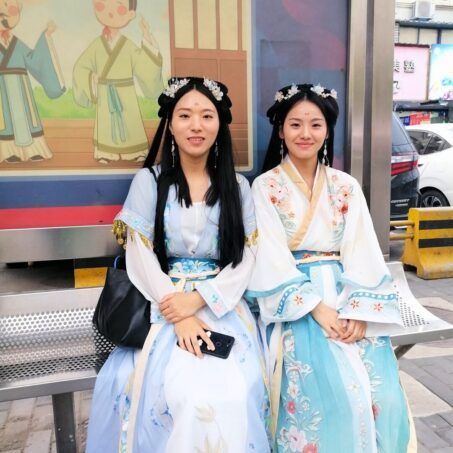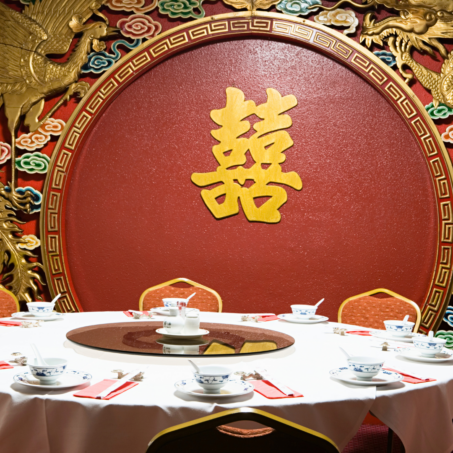When it comes to business etiquette, things like punctuality, good listening and conversation skills, and good negotiation skills are important wherever you are.
But, as with every country, there are a few unique cultural habits that are particular to China. Here’s what to expect if you ever plan to do business there, or just in case you find yourself with the opportunity to do so.
Introductions
In Chinese, surnames are stated before first names – so if someone’s first name is ‘Chen’ and their surname is ‘Li’, they’d be addressed as ‘Li Chen’. And if they hold a title within a business, for example ‘manager’ (jīnglǐ), they’d be addressed as ‘Li jīnglǐ’ (‘manager Li’).
As well as exchanging names, exchanging business cards is also a must. Make sure you use both hands when both giving and receiving, and that your card is writing-side-up when you’re giving it. It’s a great idea to have your card printed in Chinese on one side and in English on the other.
Seniority also plays an important role in order. The person with the most senior position hosting the meeting or dinner banquet should be greeted first, enter the room and sit first, and allowed to speak first to formally begin the event once everyone is settled.
Understanding ‘face’
The concept of ‘face’ is a very important one in China – whether giving face, saving face, or losing face. It can be compared to ‘prestige’ or ‘reputation’.
For example, if you give someone face, you’re attributing respect and admiration to them. If someone loses face, they’ve been ‘shown up’. If you help someone save face, you’ve saved them from embarrassment or looking bad in front of others.
This can occasionally clash with the Western idea of ‘telling it like it is’, which can sometimes come off as being harsh or rude. So make sure you give praise when it’s due, and give sincere compliments – and try to avoid doing things like interrupting someone while they’re talking, and blunt and open criticism.
Giving gifts
Giving gifts can be a little tricky, as in some situations they can be seen as bribes to government officials. But if the situation is less formal, items that are unique to your country are generally well-received.
There are a few gifts that are traditionally seen as taboo in China, too. Never give someone a green hat (‘dài lǜ mào’, ‘to wear a green hat’, is a metaphor for being cheated on), a candle (used for praying for the dead), or a mirror (they can attract ghosts!).
Instead, speciality food and drinks, perfume and cologne, and engraved pens are safer options. It’s also really thoughtful if you buy a little something for your business partners’ children if you know they have them, e.g. toys.
Drinking
Although the younger generations are gradually moving away from the habit, business and drinking often go hand-in-hand in China. It’s common for partners to relax and bond over a few glasses of baijiu, and it’s thought to strengthen business ties.
Beware of the Chinese equivalent of ‘cheers’, ‘gān bēi’ though – it means ‘dry cup’, and means the toasters should drink the whole glass. As you can imagine, downing a few rounds of potent Chinese rice wine can quickly go from merry to messy – so it’s also acceptable to ‘cheat’ after a couple of rounds with water, as long as you do so discreetly.
Interested in visiting China one day? Lingoinn not only lets you live with and learn from an expert teacher in China, but also has a choice of courses that include General Chinese, Business Chinese, and HSK exam preparation.
Lingoinn’s founder, Yinghong Huang, also co-wrote the book ‘Business Chinese 20 Essential Topics’ with Carrie Wei. It includes lots of handy Chinese business vocabulary, grammar points and cultural tips to get you off to a great start.





